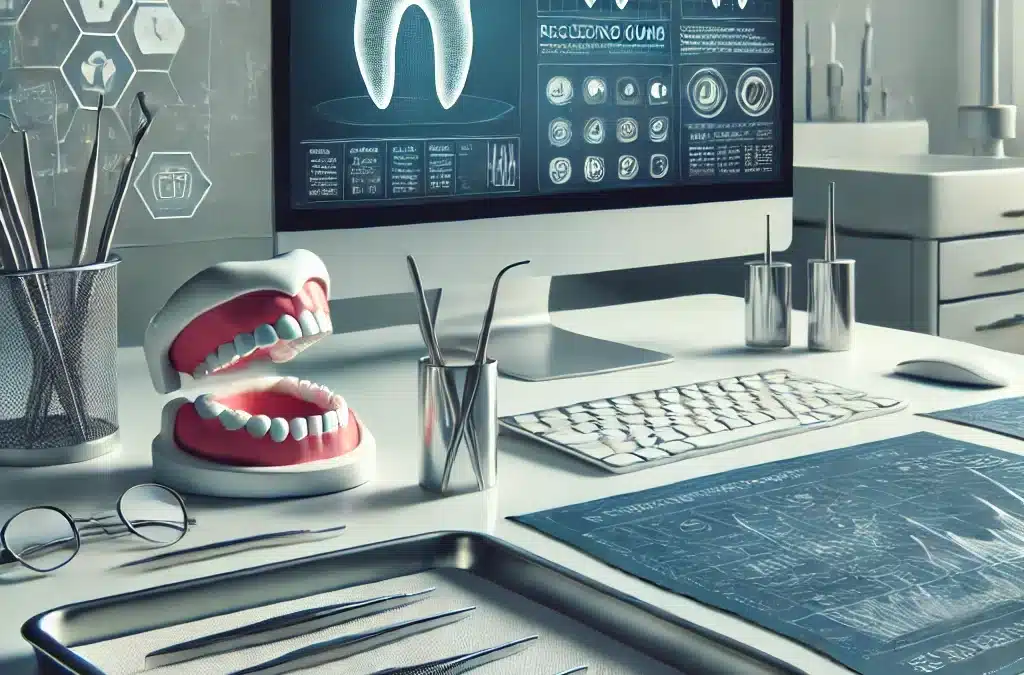
by Dr. Richard J. Walicki | Sep 29, 2024 | Periodontics, Dentistry, Gum disease, Periodontal Disease
Understanding and Managing Receding Gums: A Comprehensive Guide
Receding gums, medically known as gingival recession, is a common dental issue that affects a significant portion of the population. It can lead to sensitivity, pain, and even tooth loss if left untreated. In this comprehensive guide, we’ll explore the causes, symptoms, and treatments for receding gums, empowering you to take control of your oral health.
What Are Receding Gums?
Receding gums occur when the gum tissue surrounding the teeth pulls back or wears away, exposing more of the tooth or its root. This not only leads to aesthetic concerns but also creates gaps where bacteria can gather and potentially cause serious oral health problems.
The Silent Epidemic
Often called a “silent epidemic,” receding gums affect a significant portion of the adult population. According to the American Dental Association, up to 47.2% of adults over 30 have some form of periodontal disease, which is the primary culprit behind gum recession.
Causes of Receding Gums
Several factors can contribute to gum recession:
- Gum Disease: Periodontal disease, including gingivitis and periodontitis, is a leading cause of receding gums. In fact, according to the American Academy of Periodontology, gum disease can result in 30% of adults experiencing some form of gum recession.
- Poor Dental Hygiene: Inadequate brushing and flossing can lead to plaque buildup, causing gums to recede. Simply put, your gums crave attention just like that houseplant you keep forgetting to water – neglect it, and it withers away.
- Aggressive Brushing: Brushing too hard or using a hard-bristled toothbrush can erode gum tissue. Think of your gums as delicate rose petals; they need gentle care, not a heavy-duty scrub. Remember, it’s called “brush your teeth,” not “scrape your teeth.”
- Genetics: Some individuals are genetically predisposed to gum recession. If your family tree has a history of dental issues, it might be time to give extra attention to your gum health.
- Hormonal Changes: Fluctuations in hormones, such as during pregnancy, can make gums more sensitive and prone to recession. This often-overlooked cause highlights how interconnected our body systems are. During these times, extra gentle dental care is paramount.
- Smoking and Tobacco Use: Tobacco products can damage gums and lead to recession. A study published by the Journal of Clinical Periodontology found that smokers are up to six times more likely to develop gum disease compared to non-smokers.
- Teeth Grinding and Clenching: Bruxism exerts excessive force on the gums, leading to recession. This nocturnal habit not only disturbs your sleep but also terrorizes your gums. Consider wearing a night guard and discussing stress-relieving strategies with your dentist.
Maintaining good oral hygiene—such as brushing gently with a soft-bristled toothbrush, flossing daily, and using antimicrobial mouthwash—is crucial. Regular dental check-ups are also essential, as they allow for early detection and management of gum issues before they progress into more severe problems like gum disease and tooth loss. Dentaly.org
Symptoms of Receding Gums
Recognizing the symptoms of receding gums early can make a significant difference in managing and even reversing the condition. Here are some common indicators:
- Sensitivity to hot, cold, or sweet foods and drinks: As the gums recede, the roots of the teeth become exposed, making them more susceptible to temperature changes.
- Visible lengthening of the teeth: As gums retract, more of the tooth is exposed.
- Gum inflammation and swelling: Swollen and inflamed gums are often due to the buildup of plaque and bacteria at the gumline.
- Bad breath: Receding gums can lead to persistent bad breath, a result of bacteria accumulating in the newly created pockets between the gum and tooth.
- Bleeding gums: If your gums bleed even at the gentlest touch of your toothbrush or floss, it’s a typical symptom of gum disease.
According to the American Dental Association, “gingival recession is a condition that affects almost half of adults over the age of 30.” Early detection and intervention are crucial in preventing further damage and promoting healthier gums.
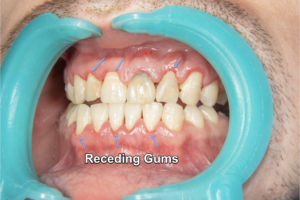
The Latest Research on Receding Gums
Recent scientific breakthroughs are revolutionizing our understanding of receding gums. Researchers have identified a complex interplay of genetic factors, microbiome composition, and systemic health conditions as key contributors to gum recession.
Genetic Predisposition
A study published in the Journal of Dental Research found that individuals with a family history of gum recession are at a higher risk. This genetic component underscores the importance of being proactive about gum health, especially if you have a family history of dental issues.
The Oral Microbiome
Our mouth houses millions of bacteria, forming what’s known as the oral microbiome. Changes in this microbial community can trigger inflammation and contribute to gum recession. Understanding the composition and behavior of the oral microbiome can open new pathways for preventing and treating gum disease.
Systemic Health Connections
Systemic health conditions, especially diabetes, add another layer of complexity. A study by the American Diabetes Association indicates that diabetic individuals are twice as likely to experience periodontal disease compared to non-diabetic patients. This connection emphasizes the importance of managing overall health for maintaining healthy gums.
Cutting-Edge Solutions
Scientists are investigating advanced regenerative techniques and biomaterials to promote tissue regeneration and restore gum health. One promising avenue is the use of peptide-based scaffolds, which have shown great potential in encouraging gum tissue growth.
Treatment Options for Receding Gums
Treatment for receding gums varies based on the severity and underlying cause of the gum recession. Here are some of the most effective options that modern dental science has to offer:
- Scaling and Root Planing: This deep-cleaning method involves removing plaque and tartar below the gum line. According to the American Academy of Periodontology, this procedure can significantly reduce gum inflammation and improve gum attachment to the teeth.
- Gum Grafting: In more severe cases, dental professionals might recommend gum grafting. Tissue is transplanted to cover exposed roots, helping to protect against further decay and sensitivity.
- Regenerative Procedures: These advanced techniques aim to stimulate natural gum growth. Using membranes, tissue-stimulating proteins, or bone grafts, dentists encourage the gum tissue to regenerate. A study in the Journal of Periodontology found that regenerative procedures can significantly reduce the depth of gum pockets and restore bone levels.
- Orthodontics: Sometimes, misaligned teeth can be the secret culprits behind receding gums. Braces or aligners can help correct these issues, distributing bite pressure more evenly and helping to prevent further gum deterioration.
- Laser Treatment: High-tech laser treatments can be used to remove diseased tissue and encourage gum reattachment to the teeth. This minimally invasive option can reduce pain and speed up recovery time.
Natural and Home Remedies
While professional treatments are often necessary, there are several natural and home remedies that can help manage gum recession:
- Maintain Good Oral Hygiene: Gentle brushing and flossing twice daily can stave off plaque build-up. Remember, overzealous brushing (with a hard brush) might actually be part of the problem. A study published in the Journal of Clinical Periodontology found that aggressive brushing is a common cause of gum recession.
- Use a Soft-Bristled Toothbrush and Non-Abrasive Toothpaste: Opt for a soft-bristled toothbrush to gently cleanse without causing harm. Choose non-abrasive toothpaste to avoid contributing to gum erosion.
- Rinse with Natural Mouthwashes: Saline solution can help reduce inflammation and sanitize your mouth. The Journal of Indian Society of Periodontology notes that diluted hydrogen peroxide can also be effective against bacteria responsible for gum disease.
- Apply Essential Oils: Tea tree oil, with its potent antimicrobial and anti-inflammatory properties, can be particularly beneficial. Another study highlighted in the Journal of Periodontology found that patients who used tea tree oil gel experienced a significant reduction in bleeding and inflammation.
Prevention Tips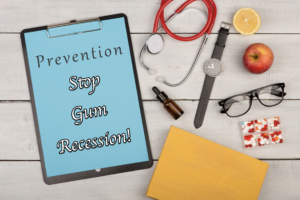
Preventing gum recession is easier than treating it. Here are some science-backed tips to keep your gumline intact:
- Regular dental check-ups and cleanings: The American Dental Association emphasizes that “Routine dental visits are essential because they detect issues early on before they become major problems.”
- Practice excellent oral hygiene: Effective brushing and flossing play a crucial role in preventing gum diseases like gingivitis, which can lead to receding gums if left untreated.
- Avoid tobacco products: The Centers for Disease Control and Prevention (CDC) note that smokers are twice as likely to have gum disease compared to non-smokers.
- Utilize a balanced diet rich in vitamins and minerals: Good nutrition is essential for gum health. Vitamins C and D, calcium, and other minerals found in a balanced diet can fortify your gums.
- Protect your teeth and gums from injury: If you grind your teeth during sleep or participate in contact sports, a mouthguard can prevent physical damage to your gums.
“The cheapest insurance for your teeth is daily flossing—it’s a simple investment that pays off. And remember, you can’t drink battery acid and expect your teeth to thrive. A healthy diet, along with brushing twice a day and flossing once, is the foundation for a lifetime of dental health.” – Dr. Richard Walicki, General and Cosmetic Dentist
Conclusion
Receding gums can be a troubling condition, but understanding its causes and treatments can empower you to take proactive steps towards maintaining your oral health. The key takeaway? Don’t neglect the symptoms of receding gums. Pain, sensitivity, and the visibility of tooth roots are all signs that need immediate attention.
Preventive measures, such as using a soft-bristled toothbrush and avoiding aggressive brushing, can go a long way in protecting your gumline. Studies also suggest that lifestyle choices, such as a balanced diet and quitting smoking, can significantly reduce the risk of gum disease. Also, routine dental visits are essential because they detect issues early on before they become major problems.
For those already experiencing gum recession, modern dental treatments offer various remedies — from scaling and root planing to laser therapies and even gum grafts. Natural remedies can also play a role in maintaining gum health, but they should complement, not replace, professional dental care.
Remember, an empowered approach today can save not just your gums, but potentially your overall health tomorrow. Stay informed about the latest research and consult with your dental professional to develop a personalized plan for treatment and prevention. Your smile is worth the effort, after all!
* Key preventive steps include:
“An ounce of prevention is worth a pound of cure.” — Benjamin Franklin
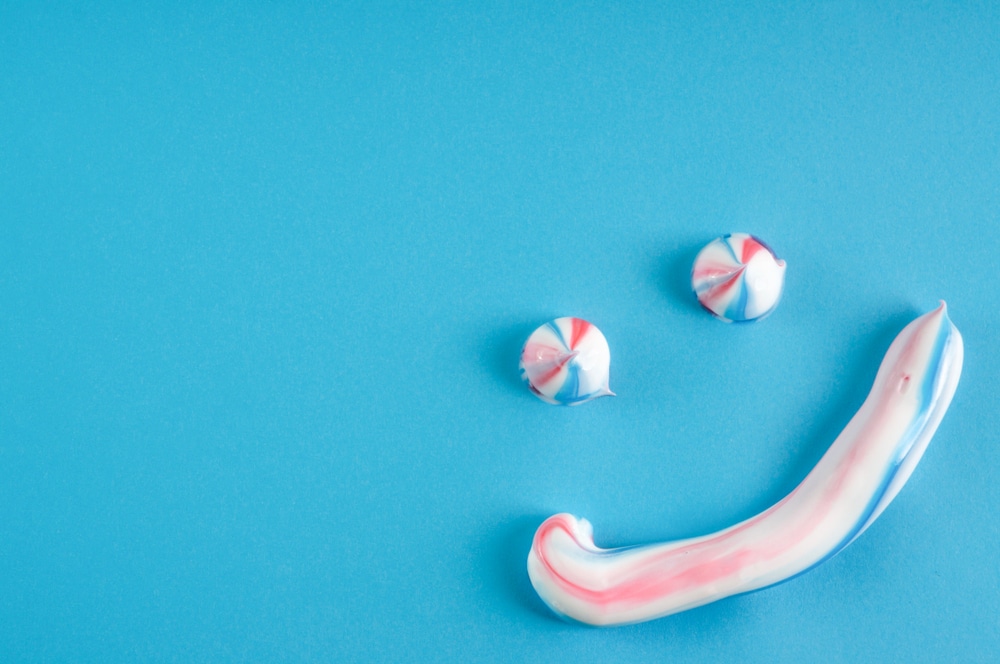
by Dr. Richard J. Walicki | Sep 25, 2024 | Dentistry
Toothpaste That Remineralizes Teeth: Does It Really Work?
The search for a toothpaste that remineralizes teeth has led to numerous innovations in dental care, promising to restore and strengthen tooth enamel. These products claim to help fight against enamel erosion and tooth decay, but how much of it is backed by science? In this article, we will explore the effectiveness of toothpaste that remineralizes teeth and provide insights into how it works.
What is Tooth Remineralization?
Tooth remineralization is a natural process that helps repair enamel damage caused by acidic foods, drinks, and daily wear. Toothpaste that remineralizes teeth plays a crucial role in this process by redepositing essential minerals, such as calcium and phosphate, back into the enamel. This action strengthens the teeth, prevents cavities, and maintains overall oral health.
How Toothpaste That Remineralizes Teeth Works
Not all toothpaste works the same way. Toothpaste that remineralizes teeth is specially formulated with active ingredients designed to enhance the remineralization process. Ingredients like fluoride, hydroxyapatite, and calcium phosphates are commonly found in these products and help fortify tooth enamel against future damage.
Key Ingredients in Toothpaste That Remineralizes Teeth
Choosing the best toothpaste that remineralizes teeth involves understanding its key ingredients:
- Fluoride: Often regarded as the gold standard, fluoride strengthens enamel by attracting minerals to the tooth surface. However, some health professionals express concerns about its broader effects on the body, prompting many to seek alternatives.
- Hydroxyapatite: A naturally occurring mineral form of calcium apatite, hydroxyapatite mimics the structure of tooth enamel and can effectively “fill in the gaps.” Studies have shown that it can be as effective as fluoride in promoting remineralization.
- Calcium Phosphates: Known as the building blocks for enamel, calcium phosphates enhance the remineralization process. They work alongside other minerals to fortify teeth.
- Xylitol: This natural sugar alcohol reduces the demineralization process and helps create an environment conducive to enamel repair. Xylitol-containing toothpaste supports remineralization by inhibiting harmful bacteria.
Scientific Evidence Supporting Toothpaste to Remineralize Teeth
Toothpaste to remineralize teeth is more than just a buzzword; it’s supported by scientific research. Studies have demonstrated the effectiveness of ingredients like hydroxyapatite in reinforcing enamel and combating tooth decay. Calcium phosphates also play a significant role, increasing enamel hardness and overall tooth health.
Best Toothpaste to Remineralize Teeth for Your Needs
Choosing the right toothpaste to remineralize teeth depends on your specific dental needs:
- For Sensitive Teeth: Look for toothpastes with potassium nitrate or stannous fluoride, which help ease sensitivity while promoting remineralization.
- Fluoride-Free Options: For those avoiding fluoride, hydroxyapatite offers a robust alternative that mimics natural enamel. Studies indicate its effectiveness in protecting against decay and sensitivity.
- Natural Products: Toothpastes rich in calcium phosphates and xylitol offer holistic approaches to remineralization. These ingredients support enamel repair and reduce harmful bacteria without relying on synthetic additives.
Toothpastes with Hydroxyapatite:
- Risewell Toothpaste – Known for using nano-hydroxyapatite (n-HAp) to remineralize teeth and protect enamel. It’s a popular choice for those looking for natural, fluoride-free options.
- Boka Ela Mint Toothpaste – Contains nano-hydroxyapatite as a fluoride alternative, aiming to remineralize enamel and reduce sensitivity.
- David’s Natural Toothpaste (Hydroxyapatite formula) – A clean, fluoride-free toothpaste that uses hydroxyapatite to strengthen enamel and combat sensitivity.
- KAREX Toothpaste – A fluoride-free toothpaste with hydroxyapatite to restore minerals and protect against cavities.
- Apagard Toothpaste – A Japanese toothpaste brand known for using medical-grade nano-hydroxyapatite to remineralize and whiten teeth.
Toothpastes with Calcium Phosphates:
- Sensodyne Pronamel – Contains calcium phosphates and is formulated to protect against acid erosion and strengthen enamel.
- Colgate Enamel Health – Features calcium phosphates that help repair weakened enamel and protect teeth from future damage.
- MI Paste Plus – A professional-grade product that contains Recaldent (casein phosphopeptide-amorphous calcium phosphate), used for remineralization, particularly after whitening or orthodontic treatments.
- Tom’s of Maine Rapid Relief Sensitive Toothpaste – Uses calcium carbonate and other calcium phosphates to strengthen enamel and reduce sensitivity.
- 3M Clinpro Tooth Creme – Contains tricalcium phosphate (TCP), which releases calcium and phosphate ions to aid in the remineralization process.
How to Use Toothpaste to Remineralize Teeth Effectively
Maximizing the benefits of toothpaste to remineralize teeth involves consistent and correct use. Brush twice daily with a pea-sized amount, avoid rinsing immediately to allow active ingredients to work, and complement brushing with flossing and regular dental check-ups.
Debunking Myths about Toothpaste to Remineralize Teeth
While toothpaste to remineralize teeth offers significant benefits, it’s not a miracle cure for severely damaged enamel. It’s most effective when used as part of a comprehensive oral care routine, including a healthy diet and professional dental treatments.
Conclusion: Fact or Fiction?
Toothpaste to remineralize teeth plays an essential role in dental care by supporting the natural processes that keep your teeth healthy. While fluoride, hydroxyapatite, and calcium phosphates are proven ingredients, it’s vital to choose products that align with your personal and dental needs. Always consult your dentist to find the best solution for your smile.
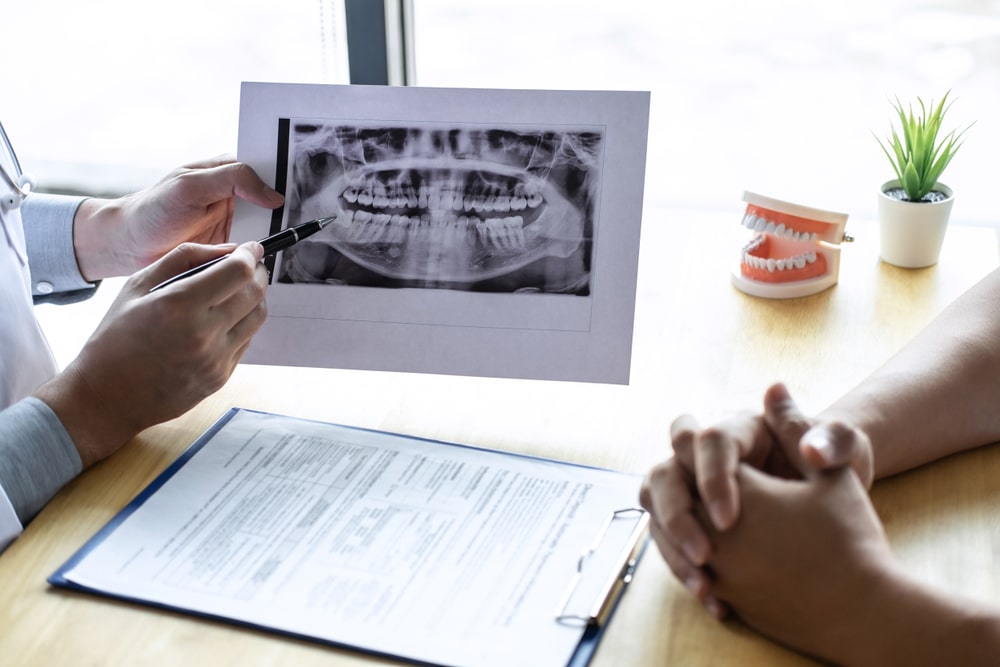
by Dr. Richard J. Walicki | Sep 18, 2024 | Dentistry
Tooth loss often causes teeth to tip out of alignment. While this may not seem like a major issue, it can lead to serious dental problems over time. These problems include cleaning difficulties, bone loss, and an increased risk of losing the opposing tooth. Let’s explore why tipped teeth after tooth loss are more problematic than they appear and how addressing them early can protect your long-term oral health.
Why Tipped Teeth after Tooth Loss Are More Than Just a Cosmetic Problem
Harder to Clean: Tipped teeth create tight spaces that trap food particles and bacteria. These areas are difficult to clean, which increases your risk of cavities and gum disease. Even regular brushing and flossing may not be enough to remove all debris. This buildup can result in plaque accumulation, which harms your oral health over time.
Bone Loss: Misaligned teeth cause uneven chewing forces. When you chew, the pressure isn’t distributed evenly, leading to bone loss in the jaw. This weakens the foundation of your teeth and can cause them to become loose. If left untreated, bone loss can eventually lead to further tooth loss.
Risk of Losing Opposing Teeth: One common concern patients have is whether they’ll lose the tooth opposite the missing one. Tipped teeth can cause the opposing tooth to over-erupt, leading to root exposure. When roots are exposed, they become more vulnerable to decay. If this decay progresses, it may be difficult to restore the tooth, and extraction might be the only option.
When to Act: Don’t Wait for Pain to Signal a Problem
Many people don’t realize that waiting until pain occurs is often too late. Just because you don’t feel discomfort now doesn’t mean the issue won’t get worse. Early intervention can save you from more extensive and expensive treatments down the line. Teeth are meant to handle vertical chewing forces. When tipped, they experience lateral forces, which lead to wear, fractures, and further misalignment.
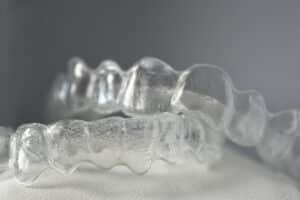
Treatment Options for Tipped Teeth
Orthodontic Treatment: Traditional braces are a highly effective way to straighten tipped teeth. By realigning the teeth, braces correct the underlying issue and restore proper function. This improves your bite and makes cleaning easier, preventing further dental problems.
Invisalign: Invisalign offers a discreet alternative to braces. These clear aligners gradually shift your teeth back into place. They are nearly invisible, removable, and offer a comfortable way to correct tipped teeth. Invisalign is a popular choice for adults looking for a less noticeable solution.
Dental Implants or Bridges: If tooth loss is the cause of the tipping, replacing the missing tooth can stabilize the surrounding teeth. Dental implants are a permanent solution that helps distribute chewing forces evenly. This prevents misalignment and protects your bone structure.
Why Early Treatment Matters
Ignoring tipped teeth after tooth loss can lead to significant problems over time. Bone loss, cavities, and gum disease are just some of the complications that may arise. Orthodontic treatments like braces or Invisalign can fix alignment issues, making your teeth easier to clean and healthier overall. And replacing missing teeth with implants or bridges can prevent tipping altogether. Acting early can save your teeth from unnecessary damage.
Tipped teeth can seem like a minor issue, but they create long-term challenges for your oral health. By addressing tipped teeth with orthodontic treatment or implants, you can protect your smile from bone loss, cavities, and tooth loss. Schedule a consultation with your dentist to explore treatment options and prevent further complications.

by Dr. Richard J. Walicki | Sep 16, 2024 | Dental Emergency, Dentistry
Have you ever wondered, is your toothache a dental emergency? Toothaches are one of the most common reasons people seek dental care, and while some tooth pain can be managed with over-the-counter treatments, others require immediate attention.
Tooth pain can range from mild irritation to severe, urgent problems. This guide explains how to recognize the signs of a true dental emergency, when to seek immediate care, and what you can do for temporary relief at home.
Signs That Answer: Is Your Toothache a Dental Emergency?
Knowing the signs of a dental emergency can help you determine whether your toothache needs immediate attention. Here are some indicators that you should see a dentist right away:
- Severe, Persistent Pain: If you’re experiencing intense pain that doesn’t subside with pain relievers, it may indicate a serious underlying issue, such as an abscess or nerve damage. When this happens, is your toothache a dental emergency? Absolutely—persistent pain is a red flag.
- Swelling or Abscess Formation: Visible swelling around the tooth or gums, especially if accompanied by pus, could mean you have an infection. Dental infections can spread and lead to serious health issues if not treated quickly.
- Difficulty Opening Your Mouth: If you have difficulty opening your mouth or moving your jaw due to pain or swelling, it may signal an infection or trauma that needs immediate attention.
- Loose or Dislodged Teeth: Whether from trauma or decay, any tooth that feels loose or has been knocked out is considered a dental emergency. Immediate care can sometimes save the tooth.
- Fever or Other Symptoms: If your toothache is accompanied by a fever or general malaise, it could indicate a more serious infection spreading to other parts of your body. In this case, the answer to is your toothache a dental emergency is almost always yes.
When to Seek Immediate Care
If you’re experiencing any of the above symptoms, it’s essential to visit a dentist as soon as possible. Delaying treatment can result in worsening pain, further damage to the tooth, or even more severe health problems. A quick visit to the dentist could save you from costly and extensive procedures later on.
Here are some specific scenarios where immediate dental care is necessary:
- A knocked-out tooth requires urgent care for the best chance of reattachment.
- Any signs of an abscess, such as swelling, fever, or bad breath, should be treated immediately to prevent the infection from spreading.
Home Remedies for Temporary Relief
If you’re unable to see a dentist right away, there are a few safe remedies that may provide temporary relief. However, these should not replace professional dental care.
- Over-the-Counter Pain Medications: Non-prescription pain relievers like ibuprofen can help manage the discomfort until you can see your dentist.
- Cold Compress: Applying a cold compress to the outside of your cheek can help reduce swelling and numb the area temporarily.
Remember, while these methods might alleviate symptoms, they don’t address the underlying problem. Be sure to schedule an appointment with your dentist as soon as possible.
Final Thoughts: Is Your Toothache a Dental Emergency?
So, is your toothache a dental emergency? Toothaches can range from minor discomfort to serious dental emergencies. Understanding when to seek professional help is crucial to maintaining good oral health. If you’re experiencing severe pain, swelling, or any other symptoms of a dental emergency, don’t delay—reach out to a dentist right away. And of course, regular dental check-ups can help prevent many of the issues that cause toothaches in the first place.
Want to know how your daily nutrition affects your teeth? Check out our post,
Diet and Oral Health: 1 Powerful Factor Behind a Healthier Smile, and discover how simple dietary changes can boost your oral health and reduce the likelihood of toothaches. For additional trusted information, the
American Dental Association’s guide to dental emergencies is a valuable resource.
FAQs About Toothaches and Dental Emergencies
How do I know if my toothache is a dental emergency?
If your pain is severe, persistent, or accompanied by swelling, fever, or difficulty opening your mouth, and you are asking yourself: is your toothache a dental emergency? In most cases, these symptoms do signal an infection or injury that needs immediate care. A quick call to an emergency dentist can prevent serious complications.
What should I do if I think my toothache is a dental emergency?
First, determine the severity of your symptoms. If you have intense pain, a knocked-out tooth, or visible swelling, the answer to is your toothache a dental emergency is yes—seek emergency dental care right away. In the meantime, use a cold compress or over-the-counter pain relievers for temporary relief.
Can home remedies help if my toothache is a dental emergency?
While home remedies such as saltwater rinses, ibuprofen, or cold compresses can reduce pain, they do not address the root cause. If you’re asking, is my toothache a dental emergency?, and your symptoms include swelling, fever, or severe pain, skip home remedies and contact a dentist immediately.
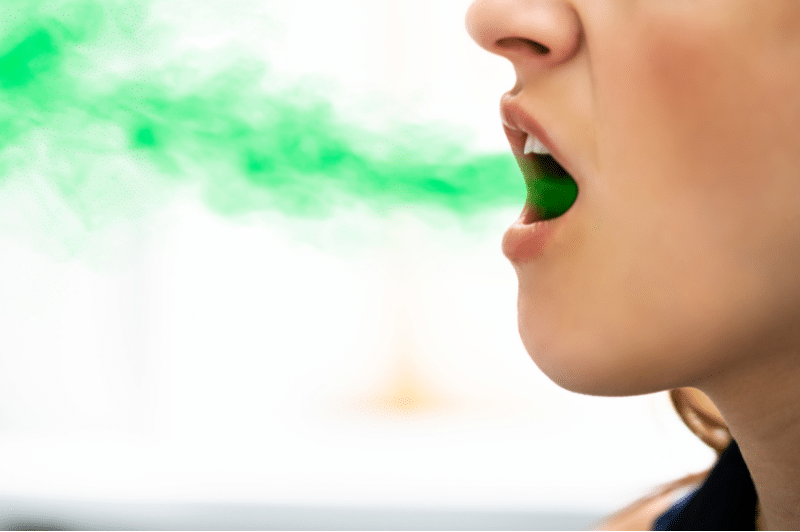
by Dr. Richard J. Walicki | Sep 14, 2024 | Probiotics, BioHacking, Dentistry
Bad breath, scientifically known as halitosis, is a common issue that affects millions of people worldwide. While many of us reach for mouthwash or mints for a quick fix, these solutions often mask the problem rather than addressing its root cause. However, what if there was a more effective, long-term solution? Recent research suggests that probiotics, typically associated with gut health, might be the key to fresher breath.
The Probiotic Promise
See our earlier blog post: Exploring the Potential of Probiotics: A Comprehensive Guide
As we’ve discussed in our previous article on oral health, the balance of bacteria in our mouths plays a crucial role in overall oral hygiene. Now, newly emerging studies are shining a light on how probiotics might tip this balance in our favor when it comes to combating bad breath.
Understanding the Research
A recent article by BIOptimizers explores this fascinating connection between probiotics and halitosis. Here are the key takeaways:
- First, traditional methods like mouthwashes and regular brushing may not address the root cause of bad breath.
- Moreover, probiotics, known for their gut health benefits, show promise in maintaining a healthier, fresher mouth.
- Finally, the science behind this approach involves introducing beneficial bacteria that can potentially outcompete the odor-causing bacteria.
My Take on the Matter
As someone who has been researching oral health for years, I find this development particularly exciting. Here’s how it appears to work:
1. Balancing the Oral Microbiome
Our mouths are home to a complex ecosystem of bacteria. However, when this balance is disrupted, certain bacteria can produce foul-smelling compounds. Fortunately, probiotics can help restore this balance by introducing beneficial bacteria.
2. Reducing Volatile Sulfur Compounds (VSCs)
VSCs are the primary culprits behind bad breath. In fact, probiotics may help reduce the production of these compounds by competing with the bacteria that produce them.
3. Supporting Overall Oral Health
Additionally, a healthy oral microbiome can contribute to overall oral health, reducing the risk of gum disease and other conditions that can contribute to bad breath.
A Word of Caution
It’s important to note that, while probiotics show promise, they’re not a cure-all. For instance, bad breath can sometimes be a symptom of more serious health conditions. As the BIOptimizers article rightly points out, it’s crucial to consult with a dentist or physician to rule out any underlying issues before trying alternative solutions.
Say Goodbye to Bad Breath
Incorporating Probiotics into Your Oral Health Routine
If you’re interested in trying probiotics for bad breath, here are a few practical steps to help you get started:
- Choose the Right Probiotic:
- First, look for specific strains: Research shows that certain strains, like Lactobacillus salivarius, are particularly effective for oral health and bad breath.
- Additionally, consider the number of colony-forming units (CFUs): A higher CFU count generally indicates a more potent probiotic.
- Finally, check for expiration: Ensure the probiotic is fresh and has not expired.
- Consult a Healthcare Professional:
- Personalized advice: A healthcare provider can recommend the best probiotic for your specific needs and any underlying health conditions.
- Consider the Form:
- Supplements: Probiotic supplements are widely available in capsule, tablet, or powder form.
- Foods: Certain foods, like yogurt, kefir, and fermented vegetables, naturally contain probiotics.
- Timing:
- With meals: Taking probiotics with meals can help them reach the digestive tract more effectively.
- Consistency: For optimal results, take probiotics consistently.
- Storage:
- Refrigeration: Some probiotics require refrigeration to maintain potency. Check the product label for specific instructions.
- Monitor for Side Effects:
- Rare but possible: While side effects are rare, some individuals may experience bloating, gas, or diarrhea. If these symptoms persist, discontinue use and consult a healthcare provider.
- Combine with Good Oral Hygiene:
- Complementary: Probiotics work best when combined with regular brushing, flossing, and tongue scraping.
Remember: While probiotics can be a helpful addition to your oral health routine, they are not a substitute for proper dental care. Always consult with your dentist or healthcare provider for personalized recommendations.
Conclusion
In conclusion, the potential of probiotics in fighting bad breath opens up exciting possibilities for oral health care. As research in this area continues to evolve, we may see more targeted probiotic solutions for various oral health issues.
For those interested in diving deeper into this topic, you can read more about probiotics and bad breath on BIOptimizers’ blog. Their article provides additional insights into the science behind this promising approach.
Create an account and use code SAVE10 at checkout for 10% off your order.












